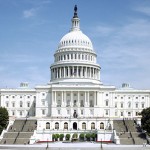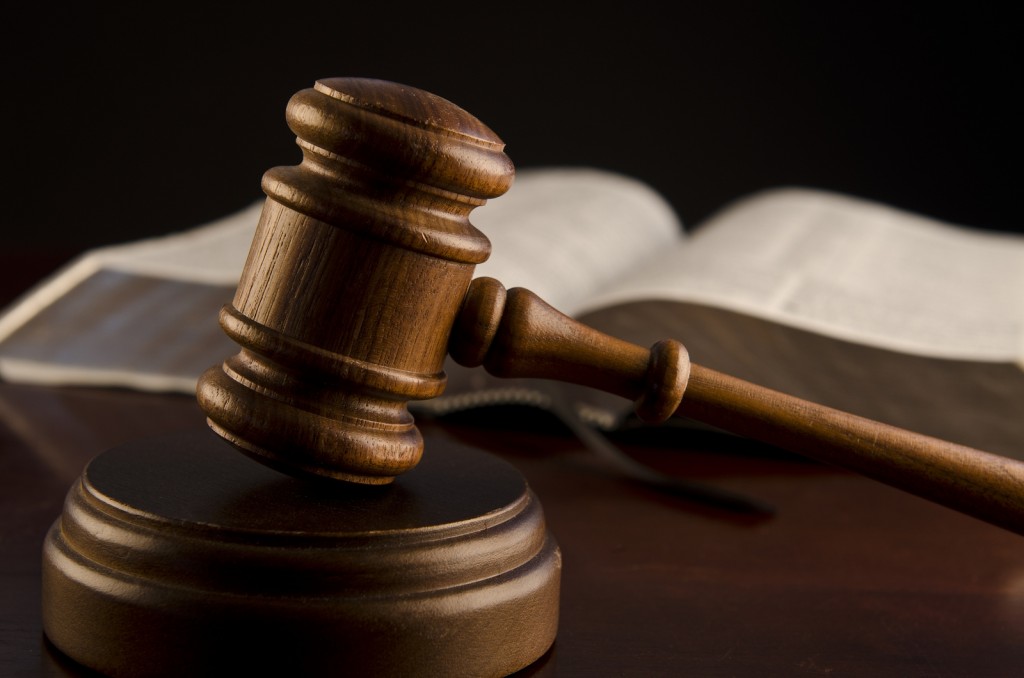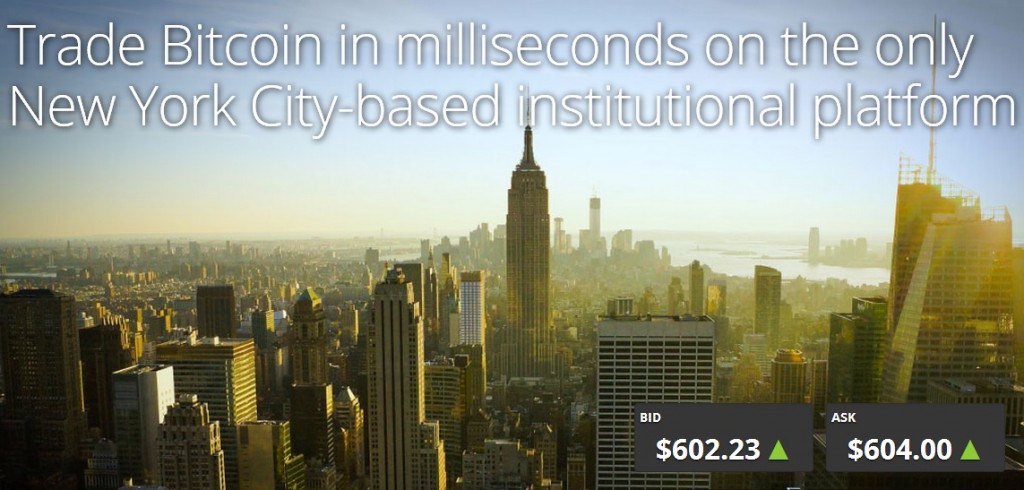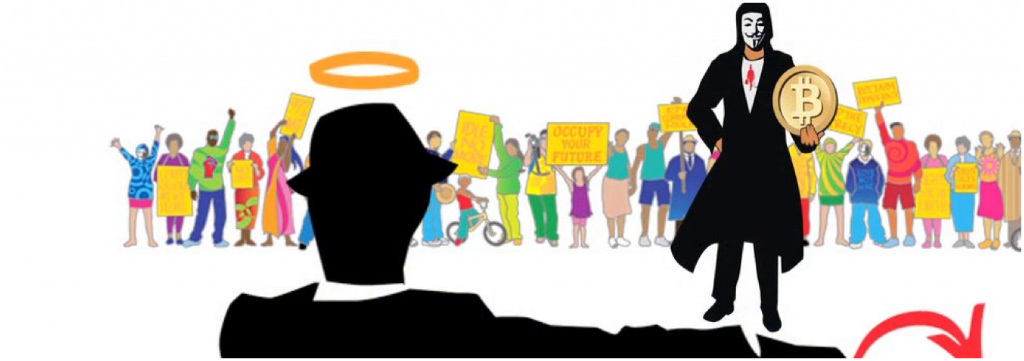The Bitcoin economy will be drastically different a year from now, as it is much different today than it was a year ago. Washington will have a huge effect on what direction the Bitcoin markets move, as Congress and regulators shape the rules Bitcoin stakeholders must adhere to. Additionally, the U.S. is the global financial leader and the regulations that come out of Washington likely will shape the treatment of Bitcoin in other nations. The discussions among members of Congress, the regulators of the regulators, cover a broad range of possibilities for Bitcoin. At the U.S. House Small Business Committee hearing on Wednesday, April 2, 2014, the possible future path of Bitcoin ranged from being a bubble with a close end in sight, to being a threat to the US dollar as the reserve currency.
Members from both sides of the aisle of politics expressed the benefit in not stifling innovators who use their ingenuity to foster financial technology. Ensuring that regulations were effective and not excessive was the hallmark of members’ responses. However, the potential threat in lack of harmony between federal regulatory agencies could stifle the technology and cause a lack of investment by institutional and venture capitalists concerned about regulatory uncertainty.
Is Bitcoin A Bubble?
An economic bubble occurs when the price of an asset rapidly expands, followed by a period of contraction. Bubbles are often the result of speculation or government interference in a market. When bubbles pop, those holding positions in the underlying inflated asset suffer financial losses. Congress is examining the consumer and investor risk of a Bitcoin bubble.
The assumption that Bitcoin is a bubble comes from the digital currency’s extreme volatility. Mark Williams, the author of Uncontrolled Risk, a book describing what caused the 2008 real estate bubble and former field examiner for the Federal Reserve Bank in San Francisco and Boston, told Congresswoman Yvette Clarke (D-NY) Bitcoin is clearly in the contraction phase in the Small Business hearing.
“Last year the [Bitcoin] space rocket went to the moon, this year it’s coming back down to earth.”
Williams also pointed out that in 2009, the year Bitcoin was unleashed, its annualized volatility was 160%. Today that number is about 140%, which is 7 times more risky than the Argentinian Peso. Additionally about 29% of bitcoins are owned by 47 people and bitcoin hoarding can lead to price manipulation.
To counter this claim, Jerry Brito of Mercatus Center testified there is nothing inherent in Bitcoin’s design that makes it extremely volatile; rather the volatility comes from the fact that it is thinly traded. He also stated, for the record, that Bitcoin volatility will subside if the Bitcoin economy expands and derivative products that allow for hedging against volatility become available.
Does It Matter If Bitcoin Is A Bubble?
Bitcoin saw large price swings in 2013. Starting the year at about $13 per BTC, it hit a high in November of over $1,200. Today, the price is hovering around $425. Mr. Williams told Congress, “we’re clearly in the pop phase right now.”
When we look at my colleague Jesse Colombo’s bubble chart on Bitcoin it does seem to resemble the classic bubble stages of stealth, awareness, mania, and blow off. However, Colombo, who is famous for predicting the 2008 housing bubble as early as 2004, has not taken a position on whether Bitcoin is a bubble because he says it’s such a small market that anything is possible.
There are roughly 50,000 merchants that accept Bitcoin in the U.S., which is less than 1% of the e-commerce market. Since Bitcoin represents such a small piece of the overall U.S. economy, Rep. Mick Mulvaney (R-SC) posed the question, “so what if it’s a bubble?” If Bitcoin prices were to crash, relatively few people would be hurt. However, Adam White, of Coinbase, a merchant processor that also testified at the Small Business hearing, said their merchant base is growing about 10% per month and 95% of their merchants are small businesses.
Could Bitcoin Be The Next World Reserve Currency?
Investopedia defines a reserve currency as “a foreign currency held by central banks and other major financial institutions as a means to pay off international debt obligations, or to influence their domestic exchange rate.” Because the USD is the international reserve currency, the U.S. has benefited from “exorbitant privilege,” paving the way for extremely large trade deficits, debt, and monetary expansion. If the USD were to lose this status, we can only guess at the extent of the negative implications for our country, and for the financial health of every American.
Rep. David Schweikert (R-AZ) stated in the hearing that by the end of this decade he believes there will be a new international reserve currency.
Bitcoin offers transaction services without third-party intermediaries, circumventing the banking system that currently dominates finance and significantly lowering transaction costs. As an efficient payment system or value of exchange, Rep. Schweikert contends Bitcoin could threaten the USD as the world reserve currency, but he’s not sure a nationless currency is a bad thing.
“What becomes fascinating here in monetary policy is all of a sudden you would have a currency, without intervention from a central bank. You would actually have an honest peg of value.”
A dissenting opinion came from Jerry Brito, who said Bitcoin has no chance of becoming the reserve currency in the short term.
“Maybe 100 years from now, but that’s impossible to predict. To say that the dollar has very deep network effects would be an understatement. Unless there is some cataclysmic monetary event, and I’m not convinced there will be, Bitcoin poses little threat.”
Did Milton Friedman Predict Future Currency?
If bitcoin were to replace the USD as the reserve currency, Mr. Williams pointed out that central banks would be replaced with computers and miners.
In 1999, 10 years before Bitcoin, Milton Friedman proposed “e-cash” or a system on the Internet that allows for money transfers anonymously, without third party intermediaries, which sounds a lot like Bitcoin.
Milton Friedman also called for an abolishment of the Federal Reserve Bank.
“We don’t need a Fed … I have, for many years, been in favor of replacing the Fed with a computer.”
The hearing on Bitcoin last week was a positive step for Congress to examine the benefits and risk of Bitcoin for small businesses. However, the wide reaching discussions regarding what the future could hold for Bitcoin show the importance of the Bitcoin community to continue to educate regulators on what Bitcoin is and how it can contribute to economic growth.
Rep. Steve Stockman (R-TX) announcing his intent to introduce the first bill on digital currencies is an important step in jump-starting this dialogue in the nation’s capital.
The post The US Congress Examines Bitcoin appeared first on Bitcoin Magazine.














